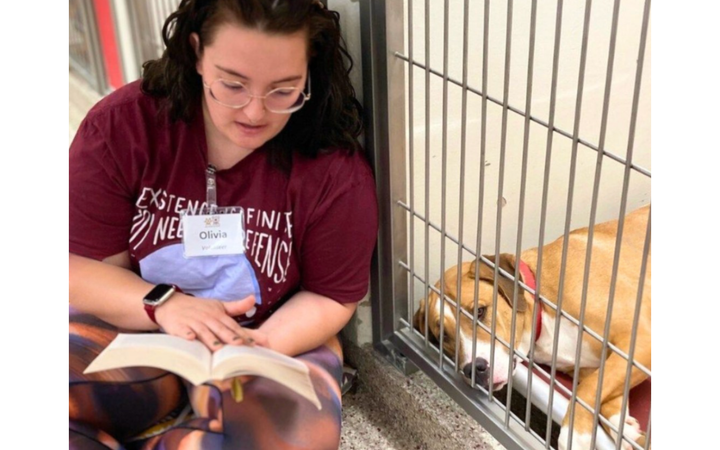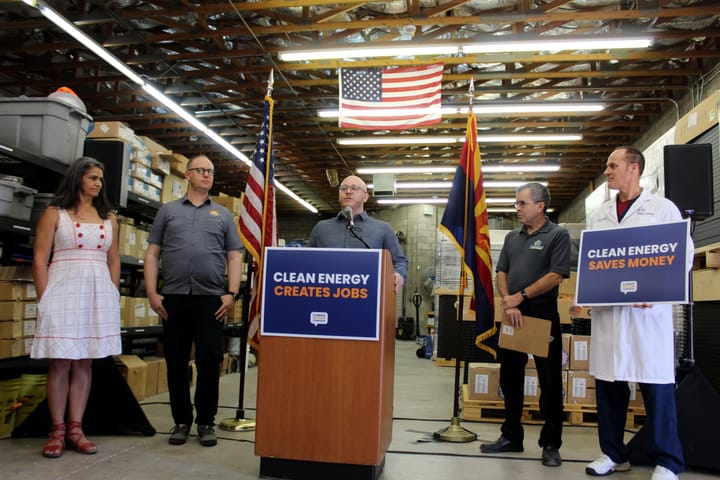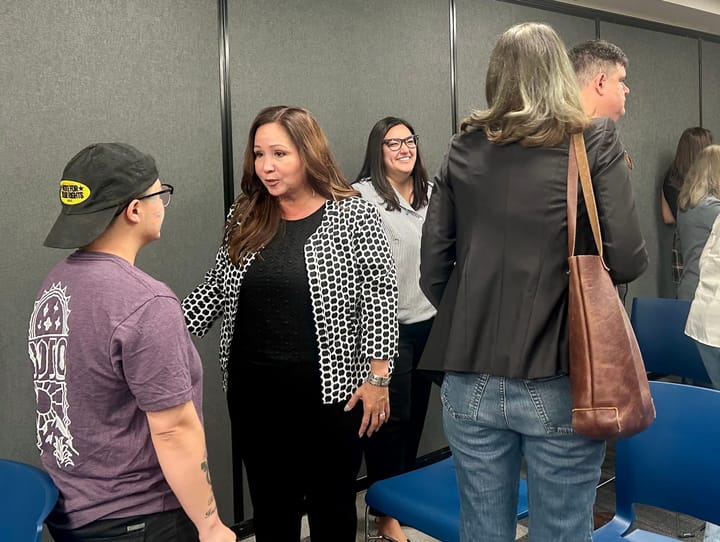Pima County high schoolers take on the nation’s problems
The 30th Tucson Metro Teen Town Hall, run by the Pima College Access Network, started in 1992 as a way to bring high school students and Pima County officials together for meaningful community conversations.
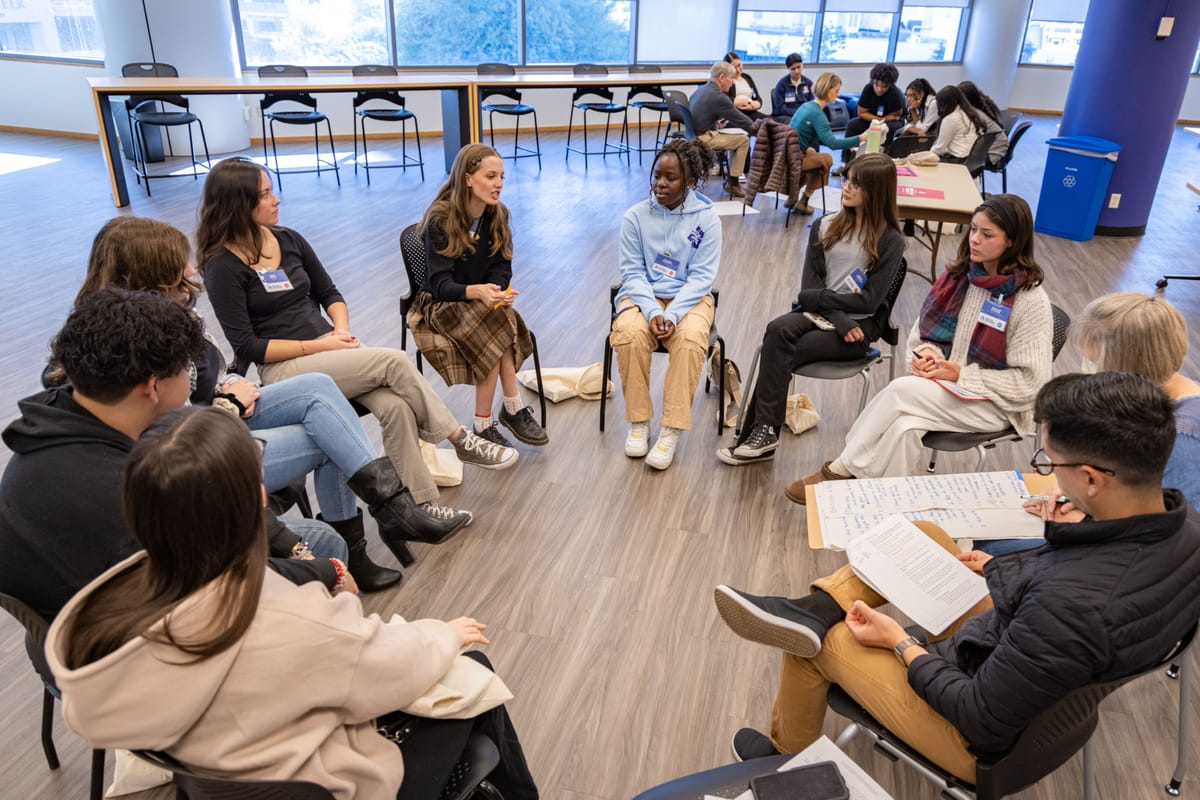
One hundred high school seniors gathered in Downtown Tucson this week to discuss potential solutions to some of the nation’s most pressing problems.
The 30th Tucson Metro Teen Town Hall, run by the Pima College Access Network, started in 1992 as a way to bring high school students and Pima County officials together for meaningful community conversations. Its goal is to empower students to explore a post-high school education.
Pima College Access Network is a project of the Metro Education Commission, which is overseen by Pima County and the City of Tucson and makes recommendations on areas that impact educational welfare.
By 9:15 a.m., the courtyard was swarming with teens from high schools across the region, including Desert View, Marana, Tucson, Sahuarita, Pueblo and more.
“I’m looking forward to learning new things and being able to speak to different people about different subjects,” said Marana High School student Jason Richardson, a member of the school’s Black Student Union.
Richardson said the union’s advisor told him the town hall would be a great opportunity to learn from community leaders.
Sahuarita High School student Mireya Ysaguirre was eager to learn about scholarship and networking opportunities.
“I hope to get connections out of this event,” she said. “Right when we get out of high school, we’re going to want to work.”
Students were treated to breakfast and a resource fair, talking with representatives from various community groups before they heard from a trio of political leaders.
“Financial problems are probably the biggest reasons students don’t go to college or post secondary school,” said Arizona ETV’s Devan Marin. “Especially if they’ve been in foster care, those financial struggles can be amplified.”
Arizona ETV offers financial aid programs for children who have been in foster care. If eligible, they qualify for up to $5,000 a year for five years. Recipients also receive free counseling services that focus on their performance in school.
“We try to do as much as we can to provide them with that support so that they can go to school and get an education,” Marin said.
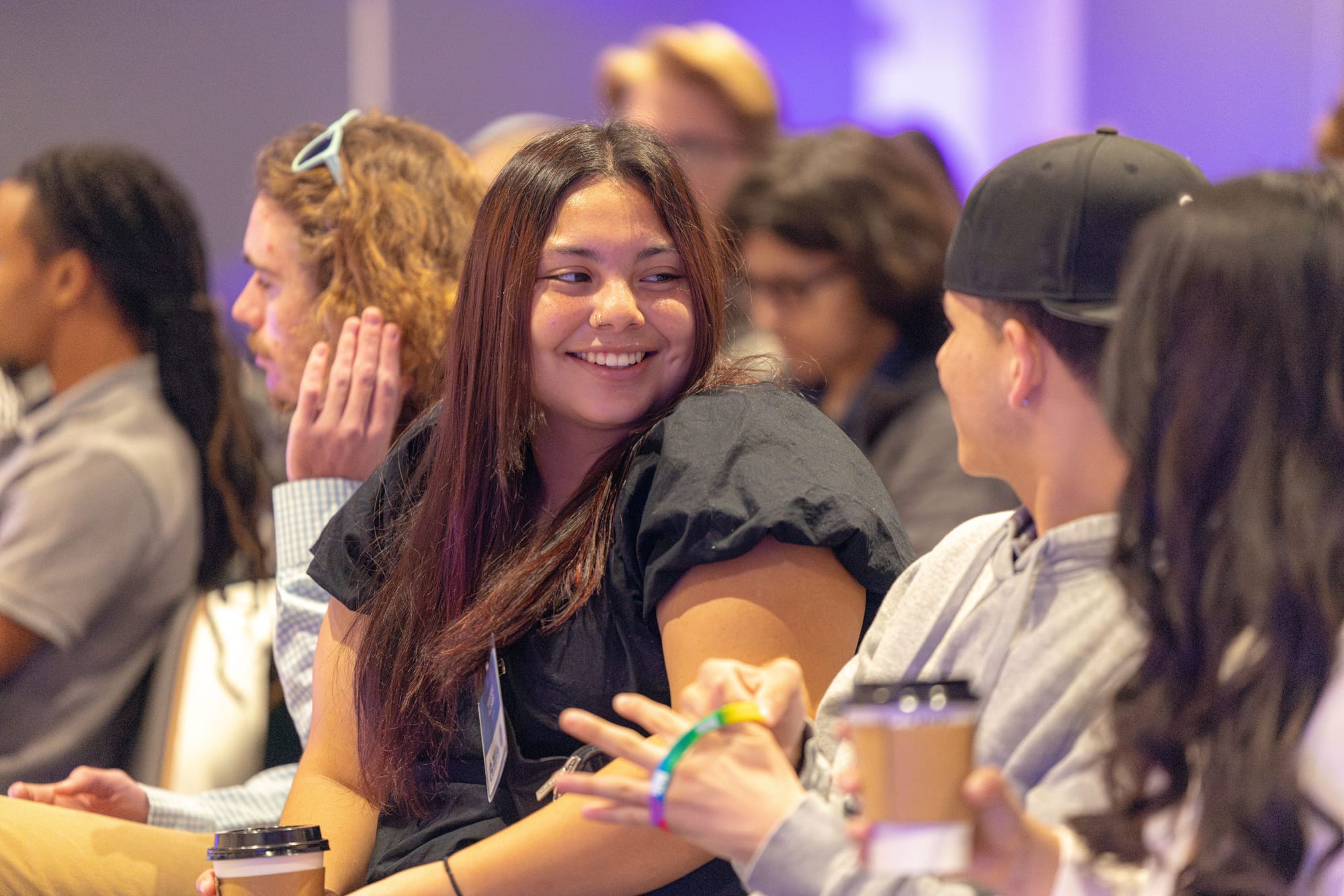
Attendees were greeted in the courthouse conference room by Pima County Attorney Laura Conover, who told them that their experiences as junior high schoolers during the pandemic had provided them with an enviable level of resiliency.
“You have all been tested already so far beyond anything that we went through in our time,” she said. “And where you are in this moment in time .. is uncertain. The waters are not calm right now.”
But times like these are especially critical when it comes to evoking change, she told the group.
“We’re going into a future we are not sure about, and that is when all the change is possible, “ she said. “That’s when one of you turns to your trusted friend and throws out a really weird or wild or out there idea, because you can and there is nothing to lose.”
Tucson City Councilmember Lane Santa Cruz told the group that as a teenager, they didn’t know all the work taken on by local government.
“I think it’s important as young people to be engaged,” they said. “As you’re in your groups and you are talking about the issues that are important to you … know you are at the center of the work that needs to happen in our community.”
Empowered by their words, the teens split into pre-selected groups to engage in discussions about mental health, climate change, substance misuse and educational inequity and access.
Within each topic, students broke up into circles of eight or nine people plus a moderator to help guide the discussion. Moderators invited the teens to share personal experiences when a statement resonated with them, and to talk about the resources available at their own schools.
“It can be scary to ask for help,” said one student in the mental health discussion group, breaking the ice for her circle.
The moderator asked the student if she felt like her school had a support system in place, opening up the conversation for others to get involved. Students talked about the impact of social media on mental wellness, stigma, challenges in recognizing when to ask to help and more.
For each topic, every circle was tasked with coming up with a list of action items, then narrowing it down to their top two priorities.
The full group then reconvened, with each group sharing.
In the mental health group, suggestions included:
- Reducing wait times on mental health hotlines to help connect people with support, faster.
- Creating solid support systems within schools to facilitate more meaningful conversations with students.
- Reducing the stigma around mental health by discussing it more openly.
- Making it easier to identify safe spaces to find help.
- Helping young people learn how to recognize when they need help.
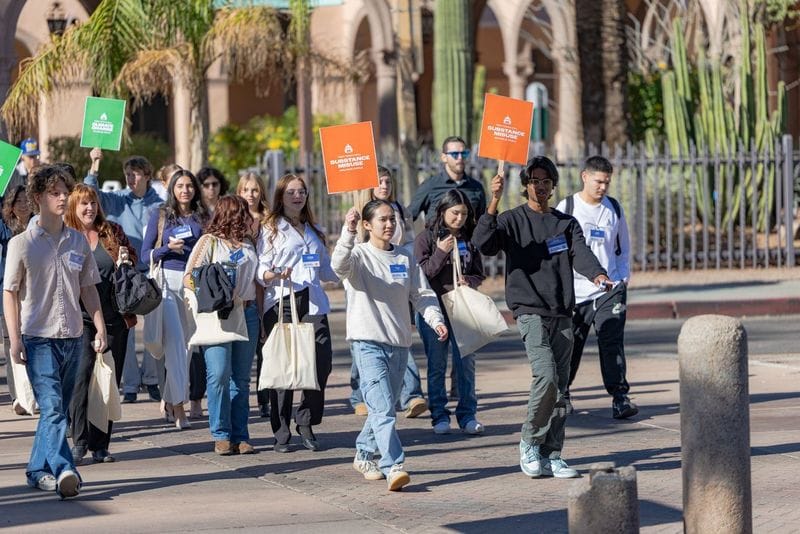
“I struggle sometimes with saying, ‘Ok, I need to step back and get some help,’” one student said.
Another student said that, while there are plenty of resources and support services available, none of that matters if a person doesn’t realize they need help.
One student said that she wanted to see schools better support young people, saying that they don’t have enough discussions about the generational impacts of trauma.
“A lot of American education systems dive into a lot of historical topics, one being colonization. But it never dives deep into how that affects Indigenous communities today,” she said. “With 9/11, we talk about how it affected America, but not about the rise in hate crimes against hijabis and how that continues today. And we don’t even talk about the LGBTQ community in American schools.”
Counselors in school, or the lack thereof, was a topic that was touched on more than once, with one student saying that more counselors would benefit students greatly.
“Schools are stressful, especially in later years,” one student said.
Social media was another popular discussion point, with several of the circles mentioning social media’s impact on teens’ self-image.
“Social media is a big problem,” said one teen. “But at the end of day, social media isn’t real. It’s just a front, and you know who you are and you don’t have to believe the things people say.”
For each topic, students were joined by subject matter experts who weighed in on suggestions and answered questions from students. Kavina Kamkhanthee, a specialist with the Pima County Health Department’s youth and schools communities program, told the group about the health department’s work to help connect kids and teens with mental health support.
She said that a lot of adults are under the misconception that teenagers are too young to struggle with mental health issues.
“You guys are very bright about mental health,” she told the group, saying that she believes some of the misconception comes down to stigma. “I think it’s good to address it in the appropriate way, and I think it starts with understanding why that stigma exists.”
Kamkhanthee talked about her program’s work with local schools, saying that charter schools have a higher risk of mental health and substance issues. She said that schools’ health teams have been key to ensuring that students have a support system in place.
Students heard from a second panel of elected officials after lunch, who talked about their journey into politics and careers in public service.
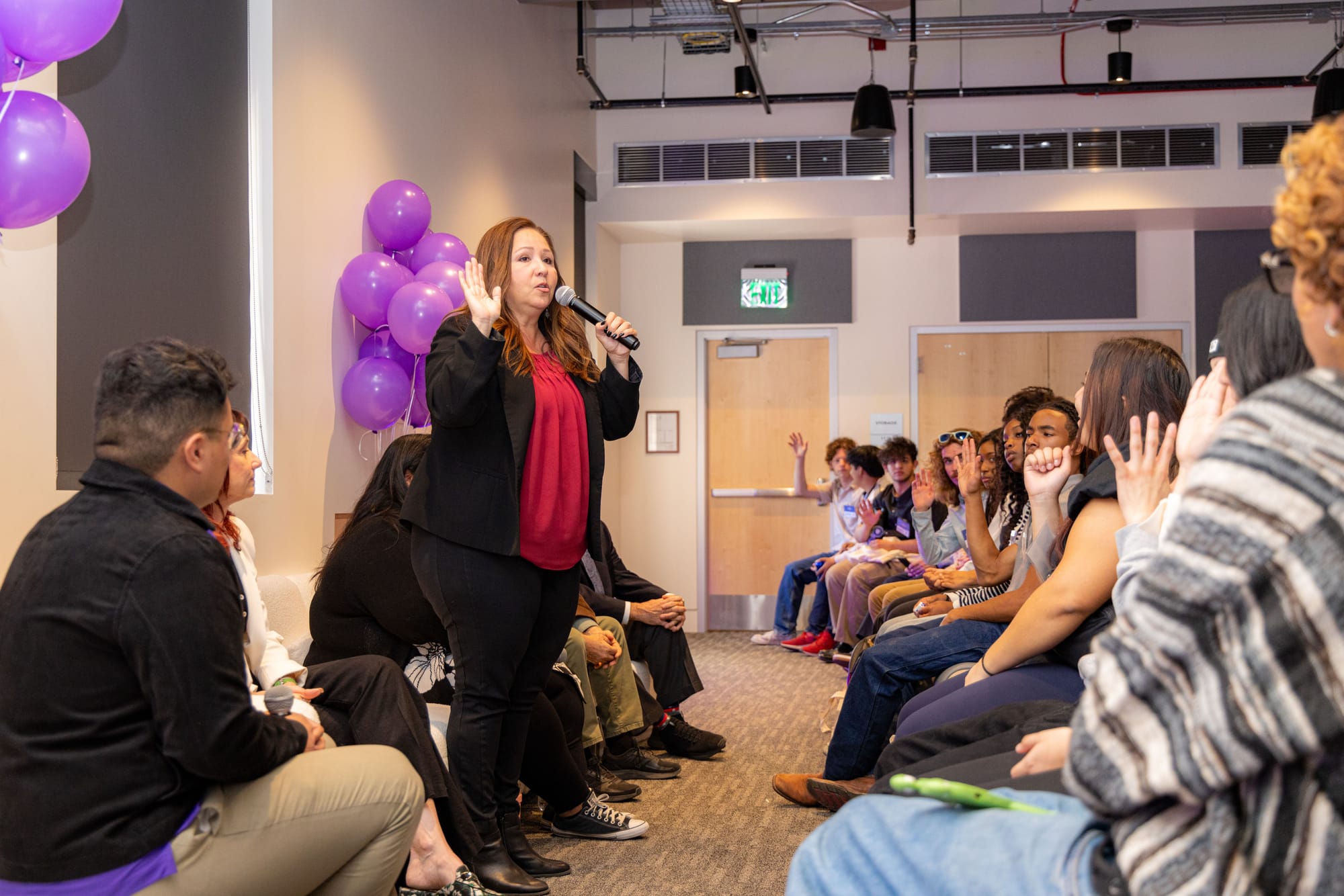
Pima County Supervisor Adelita Grijalva talked to students about breaking barriers to become the first Latina supervisor in the county.
“In 2022, I should not be the first elected anything,” she said. “And I’m only the second woman to serve as chair in the history of Pima County, which is very vast.”
She talked to students about the recent presidential election, asking how many were able to vote. Fewer than 10 hands were raised, but the number doubled when Grijalva asked who would be eligible to vote in 2025.
Pima County Recorder Gabriella Cázares-Kelly talked about her journey into politics, saying she decided to run after spending a two-hour shift registering people to vote. She told the students that any of the reasons they think they shouldn’t run for office are probably the reasons that they should.
Cázares-Kelly also talked about the struggle to be her true self while campaigning and conflicting advice she received regarding talking about the overlap between white supremacy and voter registration.
“You need to know who you are and what you care about. And sometimes that’s going to be hard and it’s going to be scary, and sometimes you’re not going to agree with your friends and you’re going to have to take a stand,’ she said. “That is going to be one of the most important things you do as you move and try to move others to get on board with you.”
Caitlin Schmidt is Editor and Publisher of Tucson Spotlight. Contact her at caitlin@tucsonspotlight.org.
McKenna Manzo is a journalism major at the University of Arizona and Tucson Spotlight intern. Contact her at mckennamanzo@arizona.edu.
Tucson Spotlight is a community-based newsroom that provides paid opportunities for students and rising journalists in Southern Arizona. Please support our work with a paid subscription.


